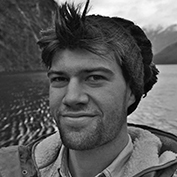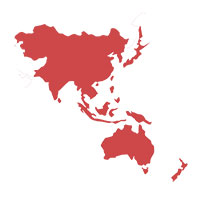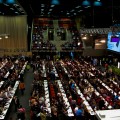Capacity Building in the Pacific
Jayden Holmes | December 2, 2011.
Small island states are amongst the first to feel the impacts of climate change, how will capacity building assist them?
By now we all know the science and consequences of climate change; 18 to 59cm of sea-level rise is expected by 2100. For some of us, that may not mean anything. But for the 32 million inhabitants of the Pacific Islands, it means a hell of a lot. As sea levels continue to rise over the coming years, we can expect to see the widespread displacement of peoples across the Pacific region accompanied by the loss of homes, livelihoods and entire national territories and cultures.

When South African President Jacob Zuma opened COP17 in Durban, South Africa, he mentioned that Kiribati, a low-lying island developing country, recently became the first country to declare that global warming is rendering its territory uninhabitable. Kiribati has now called for help in evacuating its population. The situation is dire, and poses a serious moral dilemma for developed nations which, while only representative of approximately 20% of the global population, have accounted for as much as 80% of aggregate greenhouse gas emissions.
With efforts on the international mitigation front being insufficient to date, there will be an ever increasing need for programs that address local adaptation and capacity building. Capacity building recognises the need for individuals and national institutions – particularly those in developing countries – to be strengthened in their ability to respond to the impacts of climate change.
The current Cancun Agreement and Panama Options for capacity building, however, are not good enough. Recognising the particular challenges faced by Small Island Developing States (SIDS), there should be formal acknowledgement of their need for capacity building and financial support. The fight against climate change in Pacific SIDS must also come from within. Building upon both formal and non-formal education, particularly for youth and women, can help to enhance the capacity of SIDS to adopt strong national positions and adaptation strategies based on local scientific and indigenous knowledge.
Durban needs to provide a stronger framework for implementation of capacity building, one that endorses bottom-up or endogenous approaches. The SBI has delayed its review of implementation of capacity building for long enough. This must come to an end here in Durban.
YOUNGO, the youth constituency of the UNFCCC process, is committed to seeing a fair, ambitious and progressive agreement on capacity building come out of COP17. The future of SIDS depends on it.
Jayden Holmes is a delegate to COP17 with Global Voices and the University of Melbourne.












comment